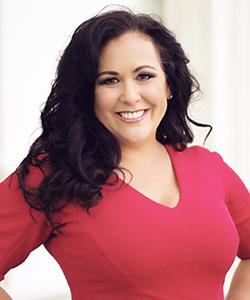Food and agriculture industries have long been bracing for California to implement more stringent recycling laws when it comes to single-use packaging. Now two identical bills successfully navigating through the Legislature are proposing drastic cuts to the production of these products.
Trade groups fear the bills could raise food production costs and undermine industry-led sustainability goals, while layering state regulations over numerous ordinances being passed at the local level.
Throughout the 2019 legislative session, the bills’ proponents and several authors and coauthors have testified that ambitious goals are needed to reign in the amount of plastic filling landfills and oceans, which is washing up on California’s beaches and being found in dead whale carcasses. Adding to the environmental pressure is the rejection from developing countries like China and Malaysia of California’s recycled trash shipments.
Senate Bill 54 and Assembly Bill 1080 would require industries to reduce by 75% the amount of single-use packaging in products by 2030. It would be phased in beginning in 2024 with a 20% reduction. More than 200 groups support the measure, while dozens are registered in opposition.
“These goals are lofty,” said Assemblymember Ian Calderon, D-Whittier, during an Assembly floor vote in May. “But I firmly believe our industry and citizens are fully capable of rising to meet them.”
For the food producers who cannot meet the goals, a penalty of up to $50,000 per day could be levied on any company not in compliance. In a recent blog post, California Citrus Mutual (CCM) argues the high penalty would drive manufacturers to instead discontinue those packaging products, rather than invest in alternatives. The supply pressures would raise the cost of packaging, “which would have a trickle-down impact on packers and growers,” writes CCM.
The legislators added some amendments last month, including a few medical exemptions, while the governor’s office has held meetings with stakeholders to strike a compromise before the bills reach his desk.
The lack of detail was concerning for other legislators during a committee hearing on the bills. The bill charges CalRecycle with determining the appropriate regulations for meeting the goals. SB 54 author Senator Ben Allen, D- Santa Monica, responded that California’s recycling program is in “a state of crisis” and immediate action is needed.

Asm. Lorena Gonzalez, D-San Diego
“At any point we could change the law if we're not happy about it,” he said, noting that the bill does require the agency to report back to the legislature on progress and many of the details will be ironed out through an initial scoping plan.
Allen said the market just “needs a little bit of a nudge” right now, which led Assemblymember Susan Eggman, D- Stockton, to question that description. She worried about unexpected consequences from the “nudge.”
“For everything we say is going to be great and we then do,” she said, “there are inherent problems.”
Trudi Hughes, the government affairs director for California Food Producers, raised concerns over the logistics challenge for the “cradle-to-grave” reporting requirements on packaging. She also said the measure could create food safety issues. The packaging is often designed to reduce contact with shoppers and grocery stockers, protecting from bacteria as well as from harming the produce.
“I would argue that there's less safety when you have plastics around food than when you don't,” countered Assemblymember Laura Friedman, D-Glendale, referring to what she saw as unhealthy chemicals in manufactured plastics products. “You've dumped a harmful product onto our planet.”
Anthony Molina, lobbying on behalf of grocers and packaging producers, asked for the bills to align with the industry’s exiting sustainability goals.

Sen. Ben Allen, D-Santa Monica
“The largest 25 consumer packaging goods companies have already committed to producing recyclable or compostable packaging and 80% have already set a 2030 deadline for packaging to be recyclable or compostable,” said Molina.
He added that manufacturers are also faced with designing packaging that adheres to the individual requirements of about 480 waste jurisdictions across the state.
“We don't want locals to come in and enact ordinances that are unachievable,” added Aaron Moreno, government relations director for the California Grocers Association.
Moreno asked for the bill to preempt local ordinances, as the Legislature had done with the state’s plastic bag ban in 2016.
Assemblymember Cristina Garcia, D-Bell Gardens, was concerned over the regulatory agency or governor’s administration not being involved in shaping the bills.
“If we're going to give (CalRecycle) all this flexibility with the scoping plan and implementation, we need to also give them the flexibility to move the percentage down from 75% if they need to,” she said.
A recent amendment did allow “added discretion” for CalRecycle to lower that recycling rate based on market conditions.
Carolyn O’Donnell, a spokesperson for the California Strawberry Commission, told Agri-Pulse the legislation fails to give credit to existing industry efforts to meet standards. One example she said is sustainable clamshell packaging, which now incorporates post-consumer waste like recycled water bottles.
O’Donnell also said the proposed timeline for the bills would not allow room for industry to develop alternatives.
“Research takes longer than we all dreamed it would to find something that not only works in the lab, but also works in real life on the truck, in the grocery store and in the consumers refrigerator,” she said.
In advocating for AB 1080 on the Assembly floor, Assemblymember Lorena Gonzalez, D-San Diego, said her bill would put California “at the forefront” for reducing single-use packaging.
Assemblymember Richard Bloom, D-Santa Monica, agreed, citing his 2014 bill banning plastic microbeads as an example. Congress passed a similar law the following year.
Sen. Allen had made a similar argument, saying the bills would be “crafting a solution that can be sold in scale to the world."
The topic is set to be a longstanding issue. A recent survey by the Public Policy Institute of California found that 77% of Californians believe the environmental health of oceans and beaches is very important to the state’s economy. Nine out of 10 Californians say plastics and marine debris are an issue, with most calling it a big problem.
The two houses of the Legislature are expected to approve the bills, with September 13 as the deadline to decide. The governor, who has favored ambitious environmental policies, will then have one month to sign or veto the measures.


